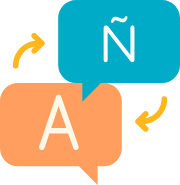Result for Language access
Start a new plan Developing greater language access is a process. You have to start somewhere, and in order to fulfill your mission, commitment to community, and obligations, your plan needs to continue to evolve. The following process can help move your organization from having no Language Access Plan to your […]
Planning and implementation In our efforts to assist and accommodate survivors with limited English proficiency (LEP), sexual and domestic violence programs have largely operated reactively when it comes to providing language access. We respond to survivors one at a time and find ways to support their participation in the programs when […]
Language Access: A planning tool for advocacy organizations Making domestic violence services accessible to individuals with limited English proficiency Creative and dedicated sexual and domestic violence programs and advocates have always found ways to improve our work toward safety, healing, and justice for those harmed by violence, and to end and prevent violence at […]
As the limited English proficient (LEP) population continues to increase in the state of Ohio and nationwide, the number of LEP defendants, victims,and witnesses processed through the Ohio criminal justice system will also increase. This guide can help to obtain interpretive services, which is the first step in working with LEP […]
This toolkit is designed to guide and inform advocates working with survivors with limited English proficiency (LEP) who are involved in civil legal proceedings. This toolkit is for domestic violence and sexual assault advocates who want to: Understand the legal rights to meaningful language access of survivors with LEP, understand when […]
Language identification flashcard in Arabic, Armenian, Bengali, Cambodian, Chamorro, Simplified Chinese, Traditional Chinese, Croatian, Czech, Dutch, English, Farsi, French, German, Greek, Haitian Creole, Hindi, Hmong, Hungarian, Ilocano, Italian, Japanese, Korean, Laotian, Polish, Portuguese, Romanian, Russian, Serbian, Spanish, Tagalog, Thai, Tongan, Ukranian, Urdu, Vietnamese, and Yiddish.
In this document, Enhancing Access to Safety for Immigrant Survivors of Domestic Violence and Sexual Assault, there is information on how to access to services, immigration-related resources for survivors, individual safety planning, public charge resources, language access, materials for agencies, DHS and ICE resources and memos, and COVID Informational Resources.
In early 2014, Esperanza United (formerly Casa de Esperanza) conducted a national assessment of the language accessibility of court systems to survivors of sexual and domestic violence (S/DV), who have limited English proficiency (LEP).
In this episode of Conversations over Cafecito, we meet with Dr. Cathleen D. Cahill, Associate Professor of History at Penn State to discuss her book, Recasting the Vote: How Women of Color Transformed the Suffrage Movement, a collective biography of six suffragists of color–both before and after the ratification of the […]
This session will highlight the importance of shifting from language access to language justice, and building systems that support Limited English Proficient (LEP) individuals.









